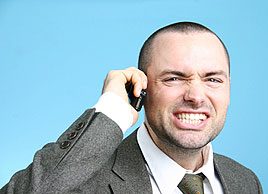6 things you should know about teeth grinding
Teeth grinding is the main sign of the condition bruxism. The painful symptoms of severe teeth gnashing and clenching include headaches, jaw pain and damaged teeth. Here’s what you need to know about bruxism

Do you or a family member grind your teeth? In severe cases, bruxism’grinding, gnashing or clenching your’can lead to problems. ‘It does a lot of damage,’ says Dr. Ron Smith, a dentist in Duncan, B.C., and president of the Canadian Dental Association. ‘If someone is doing it on a regular basis, they should get help.’
About 10 percent of adults grind or clench their teeth. Here are six things to know if you’re affected by bruxism:
1. It hurts more than just your teeth
In most cases bruxism is mild. But, when it’s frequent and severe, Grinding your teeth can aggravate the joints in your lower jaw, also known as the temporomandibular joints, or TMJs. This can lead to pain or tightness in the joint area, and even earaches and headaches.
Of course, bruxism is bad news for your teeth, too. The habit can wear down your enamel, cause increased tooth sensitivity, and result in chipped or broken teeth. ‘Some people are putting incredible forces on their teeth,’ says Dr. Smith.
2. It’s linked to stress
You may be more likely to grind or clench your teeth if you’re tense, anxious or frustrated. However, we don’t yet fully understand all of the factors that lead to teeth grinding. Drinking caffeine or smoking before bed may be a contributing cause. Teeth grinding is also associated with certain competitive or highly determined personality types. If your teeth are misaligned and your muscles are pulling your jaw into an unnatural position, you may end up grinding your teeth.
3. You can start doing it later in life
Even if you’ve never been a teeth grinder or clencher, that doesn’t mean you’ll never become one. Since stress is the main cause of bruxism, you may become a teeth grinder or clencher later on due to unexpected changes and challenges in your life.
4. You may not know you’re doing it
Convinced you never grind your teeth? Since it commonly happens while you’re sleeping, many people may be unaware of it. ‘Sometimes they will deny they’re doing it, even when they have a lot of damage to their teeth and it’s pretty obvious,’ Dr. Smith says.If you have unexplained facial pain, earaches or headaches, or tenderness around the jaw joint, you could be grinding without knowing it. Often, it’s a sleep partner who will complain about being disturbed during the night by the hair-raising sound of constant grinding.
5. Children do it more than adults
Up to 15 percent of kids grind their teeth. One survey puts the figure as high as 38 percent. Does that mean our kids are stressed out? Not necessarily. Children may also grind their teeth when they’re coping with earaches or teething, or it may be related to their jaw and tooth growth and development. Kids who drool at night, talk in their sleep or have a psychological disorder are more likely to grind their teeth. Fascinating fact: Bruxism runs in families. But children who grind their teeth usually outgrow it by adolescence.
6. It’s treatable
Now the good news: In many cases, no treatment is needed. But if the problem is severe, there are ways to stop the gnashing of teeth at night. A common and very successful approach is a plastic mouth guard, which fits over your teeth and reduces or eliminates damage from unwitting grinding during sleep. It will also ease the associated joint pain. Your dentist can fit you for a guard.
Sometimes, just changing the position you sleep in, or eliminating caffeine or smoking before bed can reduce teeth grinding.
Daytime bruxing is easier to manage because you’re more aware of it. If you notice yourself grinding or clenching your teeth, make a point of relaxing your jaw with your mouth closed and your teeth apart. If the habit is related to stress, then it may help to find other ways to cope, like doing yoga or listening to relaxing music.




